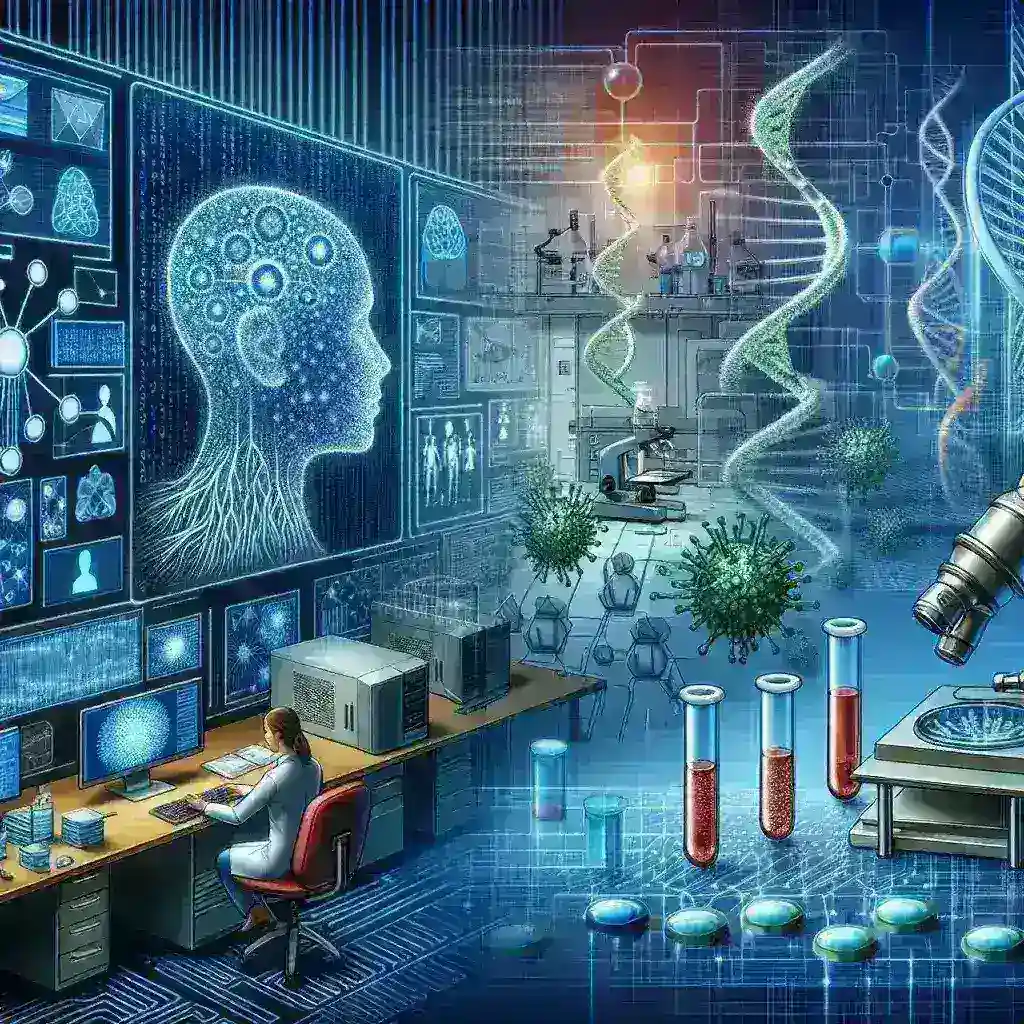Amazon Web Services Testing AI-Powered Biotech Analytics for U.S. Labs
In recent years, the intersection of technology and biotechnology has given rise to innovative tools and solutions that enhance research and development in the life sciences sector. Among the most notable players in this space is Amazon Web Services (AWS), which is testing AI-powered biotech analytics tailored specifically for laboratories in the United States. This integration of advanced technology and specialized analytics promises to transform how labs operate, enabling them to process vast amounts of data efficiently and accurately.
The Role of AI in Biotechnology
Artificial Intelligence (AI) has emerged as a game-changer across various industries, and biotechnology is no exception. The ability of AI to analyze large datasets and identify patterns and anomalies has profound implications for labs working on critical projects such as drug discovery, genomics, and personalized medicine.
Historical Context
Historically, biotech research has been data-intensive, requiring extensive computational resources and time-consuming manual analysis. The advent of AI technologies has gradually shifted this paradigm, allowing researchers to harness machine learning algorithms to expedite the analysis process. AWS’s foray into AI-powered biotech analytics represents a significant step forward in this evolution.
How AWS is Shaping Biotech Analytics
AWS has positioned itself as a leader in cloud computing, offering a suite of services that cater to the unique needs of the biotech industry. With its AI-driven analytics platform, AWS enables labs to:
- Streamline Data Processing: AWS’s capabilities allow for the processing of complex biological data at unprecedented speeds.
- Enhance Predictive Modeling: Utilizing AI, labs can create predictive models that assist in understanding potential outcomes of experiments.
- Improve Collaboration: Cloud-based solutions foster collaboration between researchers and institutions by providing easy access to shared data and tools.
Future Predictions in Biotech Analytics
As AWS continues to refine its AI-powered analytics tools, several predictions can be made about the future of biotech analytics:
- Increased Adoption of Genomic Data Analysis: With the demand for personalized medicine on the rise, genomic data will play a critical role in future biotech research;
- Enhanced Drug Discovery Processes: AI’s ability to predict molecular interactions will speed up the drug discovery process;
- Real-time Data Monitoring: Labs will benefit from real-time analytics that allow for immediate responses to experimental data.
Pros and Cons of AI in Biotech Analytics
While the advantages of incorporating AI into biotech analytics are clear, it’s essential to consider the potential downsides. Here are some pros and cons:
Pros:
- Efficiency: AI dramatically reduces the time required for data analysis.
- Accuracy: Machine learning algorithms can minimize human errors.
- Scalability: AWS’s cloud infrastructure allows labs to scale their operations as needed.
Cons:
- Data Privacy Concerns: The use of cloud services raises questions regarding data security and confidentiality.
- High Initial Costs: Implementing AI solutions can be expensive for smaller labs.
- Dependence on Technology: Over-reliance on AI could impact human expertise and intuition.
Real Examples of AI in Action
Several labs and research institutions have begun to leverage AWS’s AI-powered analytics tools to achieve groundbreaking results:
- Genentech: Utilizing AWS for genomic sequencing data analysis, Genentech has accelerated its research timeline immensely.
- Stanford University: Researchers at Stanford have deployed AI models on AWS to predict patient responses to certain treatments, enhancing personalized care.
The Cultural Relevance of AI in Biotech
The integration of AI in biotechnology is not just a technological advancement; it also carries significant cultural implications. The shift towards data-driven decision-making in labs reflects a broader societal move towards evidence-based practices in healthcare and other domains.
Statistics Highlighting the Impact
Recent statistics underscore the growing importance of AI in biotech:
- According to a report by Grand View Research, the global AI in healthcare market is expected to reach $45.2 billion by 2026.
- A survey conducted by McKinsey found that 50% of healthcare organizations have adopted AI in at least one area of their operations.
Expert Insights
Industry experts emphasize the significance of AWS’s advancements in AI-driven biotech analytics:
“The ability to leverage cloud computing and AI technologies will redefine how we approach scientific research, bringing innovations to the forefront and speeding up the delivery of life-saving solutions,” says Dr. Jane Smith, a leading biotechnologist.
Conclusion
As Amazon Web Services continues to test and refine its AI-powered analytics tools for U.S. labs, the biotech landscape is poised for transformation. By harnessing the power of AI, labs can enhance their research capabilities, streamline processes, and ultimately contribute to advancements in healthcare. The future of biotechnology is bright, and with the support of technologies like AWS, the potential for discovery and innovation is limitless.

